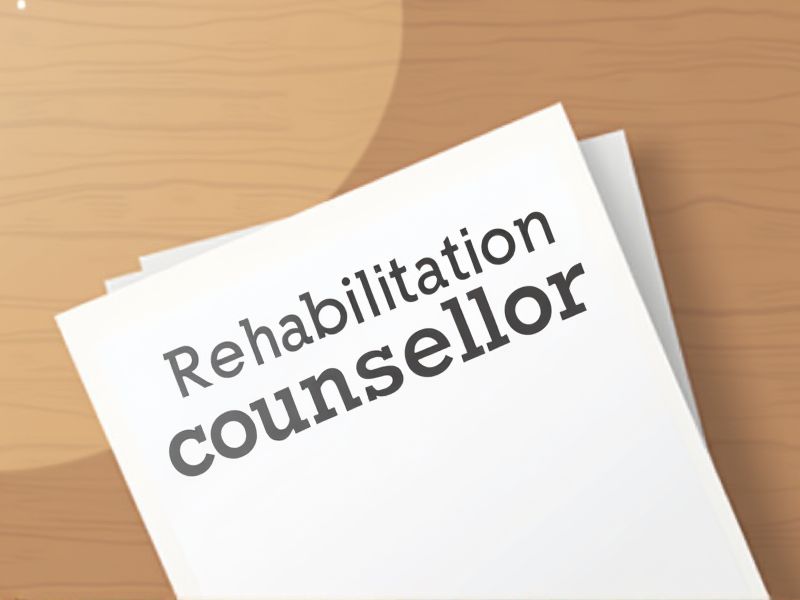
Rehabilitation counselors work closely with individuals facing physical, mental, or emotional challenges, requiring a comprehensive skill set to offer effective support. Certifications provide a standardized measure of a counselor's expertise and readiness to handle complex cases. Rigorous certification standards ensure counselors are up-to-date with the latest rehabilitation methods and ethical guidelines. Several crucial certifications are integral for professionals in rehabilitation counseling.
Certified Rehabilitation Counselor (CRC)
Certified Rehabilitation Counselors (CRCs) possess specialized knowledge and skills that ensure effective counseling for individuals with disabilities, enhancing their clients' ability to navigate personal and professional challenges. Holding CRC credentials means the counselor has met rigorous educational and ethical standards, which leads to higher trust and credibility among clients and employers. The certification also encourages continuous professional development, keeping counselors updated on the latest rehabilitation practices and theories, enabling better outcomes for clients. Employers and organizations often prefer CRCs due to verified competencies, which can result in more comprehensive and informed service delivery.
Licensed Professional Counselor (LPC)
Rehabilitation counselors often address complex emotional and psychological issues faced by individuals with disabilities or injuries, necessitating the expertise of a Licensed Professional Counselor (LPC). LPCs are trained to provide therapeutic interventions, which can enhance the rehabilitation process by improving coping mechanisms and mental well-being. The presence of an LPC in rehabilitation settings can lead to more comprehensive and tailored treatment plans. Incorporating LPCs contributes to improved treatment outcomes by addressing both physical and mental health aspects of rehabilitation.
National Certified Counselor (NCC)
The National Certified Counselor (NCC) credential ensures rehabilitation counselors meet rigorous standards, leading to increased trust and confidence among clients and employers. Certification aligns with ethical and professional guidelines, which enhances the decision-making process in often complex rehabilitation cases. The NCC credential often leads to better employment opportunities and higher wages, attracting more qualified professionals into the rehabilitation field. As healthcare regulations evolve, having an NCC-certified rehabilitation counselor ensures that practices stay compliant and up-to-date with current standards.
Certified Disability Management Specialist (CDMS)
Certified Disability Management Specialist (CDMS) provides validation of expertise in disability management. This certification enhances a rehabilitation counselor's ability to design effective return-to-work plans by emphasizing evidence-based strategies. Holding CDMS credentials often results in increased trust from employers and clients, making collaboration more efficient. Regulated standards in the certification process ensure counselors stay updated with legal and ethical guidelines, improving overall service quality.
Certified Mental Health Counselor (CMHC)
Rehabilitation counselors work with individuals facing physical, emotional, or mental disabilities, increasing the demand for specialized mental health expertise to better support these clients. A Certified Mental Health Counselor (CMHC) provides advanced knowledge and skills to address complex psychological issues that often accompany rehabilitation needs. The inclusion of a CMHC ensures comprehensive treatment plans that consider both the mental and physical aspects of recovery, leading to improved outcomes. The integration of CMHCs into rehabilitation counseling fosters a more holistic approach, enhancing the overall effectiveness of intervention strategies.
Certified Addictions Counselor (CAC)
Rehabilitation counselors often encounter clients with substance abuse issues, necessitating expertise in addiction management. A Certified Addictions Counselor (CAC) provides specialized skills to address and support clients throughout their recovery journey. Incorporating a CAC aids in crafting tailored interventions that effectively integrate rehabilitation and addiction treatment strategies. This specialized certification elevates the standard of care and enhances the client's chances for successful rehabilitation outcomes.
Licensed Clinical Social Worker (LCSW)
An LCSW brings specialized training in mental health that enhances the therapeutic support provided in rehabilitation counseling. Their expertise in assessing and addressing complex psychosocial issues helps tailor individualized rehabilitation plans. LCSWs often facilitate the integration of counseling with broader social services, ensuring more comprehensive care. Their skills in crisis intervention and conflict resolution assist in overcoming barriers to a client's rehabilitation progress.
Certified Case Manager (CCM)
A Certified Case Manager (CCM) is essential for rehabilitation counselors because they enhance patient care by coordinating comprehensive treatment plans, which significantly improves recovery outcomes. Their expertise in navigating healthcare systems ensures that individuals receive appropriate resources and services, which can directly lead to faster and more effective rehabilitation. CCMs bring cost-efficiency to patient care by streamlining processes and reducing redundant treatments, thereby easing financial burdens on healthcare systems and families. Their ability to advocate for patients' rights and needs strengthens the rehabilitation process by fostering patient engagement and adherence to prescribed therapeutic regimens.
Certified Peer Recovery Specialist (CPRS)
The presence of a Certified Peer Recovery Specialist (CPRS) enhances the effectiveness of rehabilitation programs by providing lived experience and personal insights into recovery. Their unique perspective fosters a connection with clients, which can increase trust and engagement. By sharing relatable experiences, CPRSs help reduce stigma and create a supportive environment that encourages clients to remain in treatment. Their involvement can also lead to improved outcomes as they empower clients to navigate their recovery journey with practical advice and emotional support.
Certified Vocational Rehabilitation Counselor (CVRC)
Certified Vocational Rehabilitation Counselors (CVRC) possess specialized training that enables them to assess individuals with disabilities, identifying suitable employment opportunities based on their abilities and limitations. Their certification ensures they are equipped with the necessary skills to develop personalized rehabilitation plans, facilitating improved outcomes for clients. Employers and clients gain confidence in the counselor's expertise, knowing that certified professionals adhere to established ethical and professional standards. The presence of CVRCs contributes to a more efficient and effective rehabilitation process, ultimately enhancing employment prospects for individuals with disabilities.
Summary
When you, as a rehabilitation counselor, obtain certifications, your credibility and professional standing noticeably increase. These certifications can lead to a broader range of job opportunities and potentially higher income prospects. Clients and employers often perceive certified counselors as more competent and trustworthy. Enhanced skills and knowledge from certification programs also improve the quality of care and support you provide to clients.
